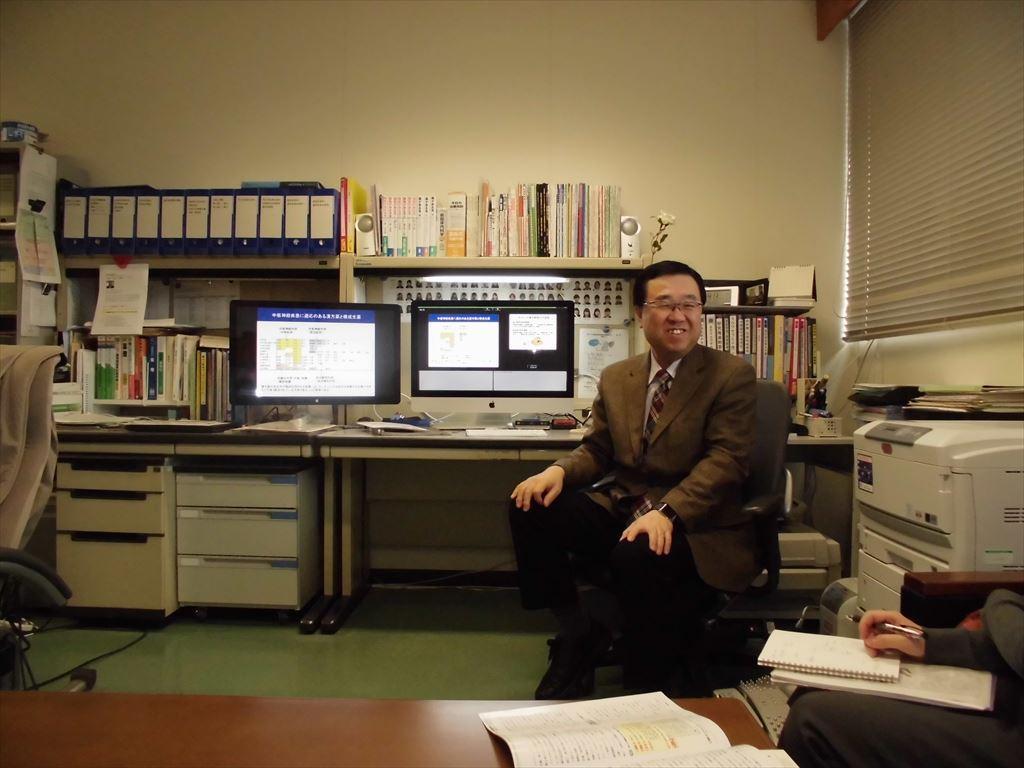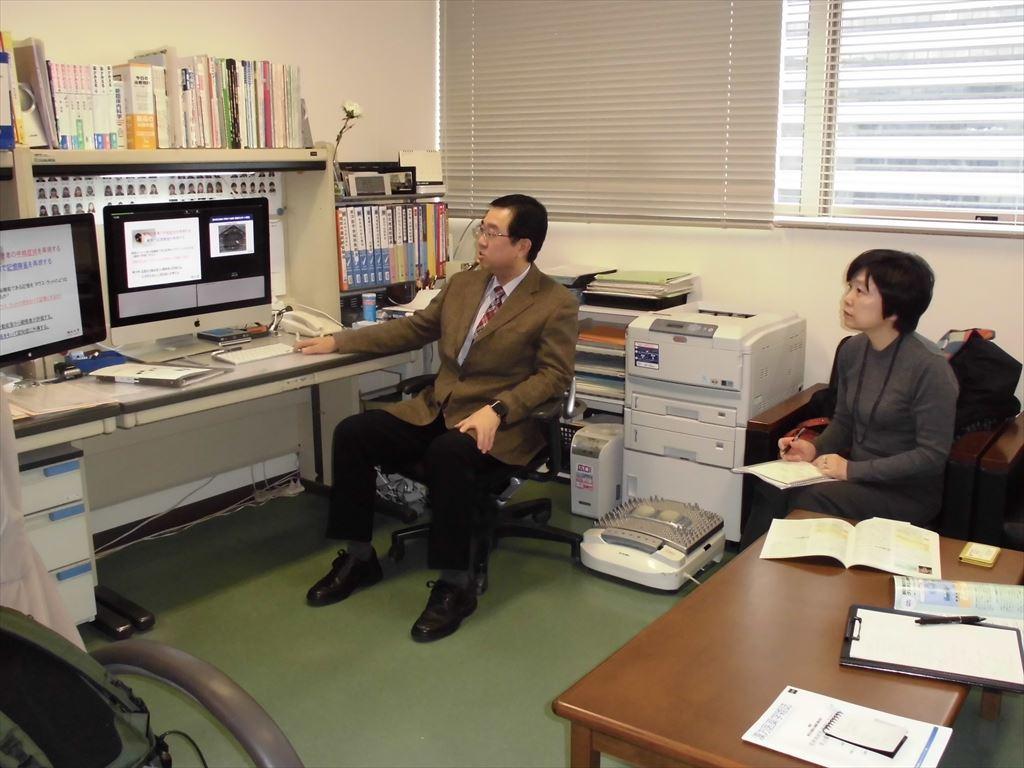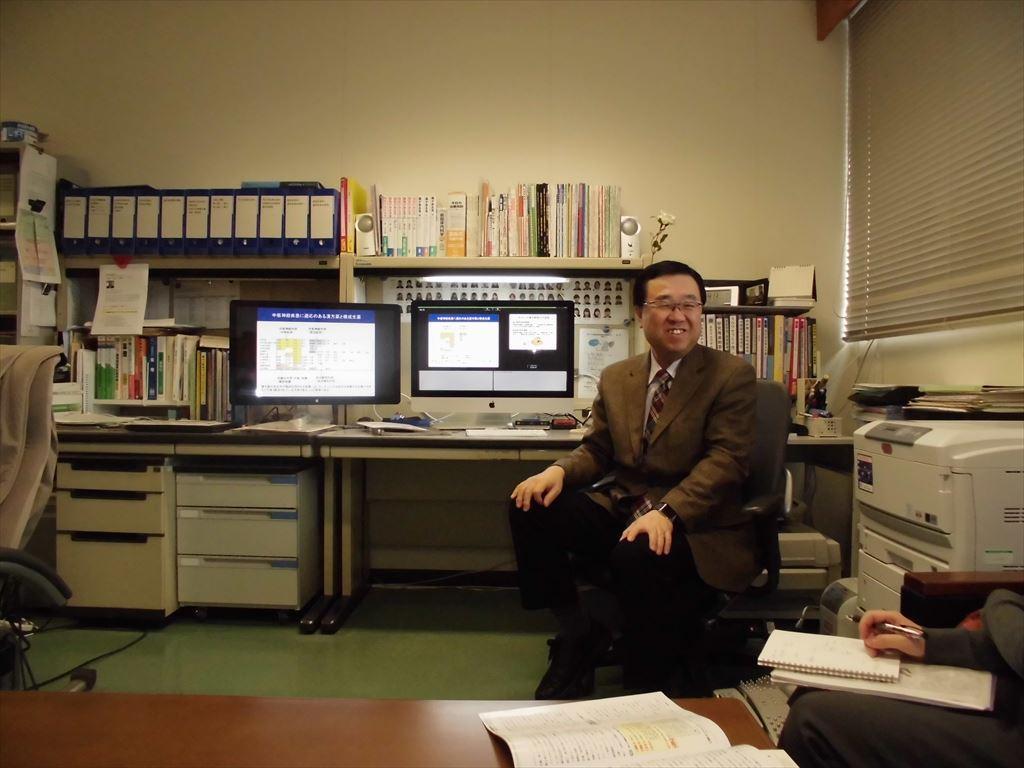
No.3
Clarifying the action mechanism of traditional Kampo medicine for preventing dementia
Middle-aged~older age
Social Activity Support / Active Elderly People Research Team
Leader
Katsunori Iwasaki(Professor of Faculty of Pharmaceutical Sciences , Director of AIG Collaborative Research Institute for Aging and Brain Sciences)
It is estimated that by 2015 when the baby-boomer generation passes 65 years of age, the number of patients with dementia will exceed 2.5 million, which will further increase to more than 3 million people by 2020. Alzheimer's disease is the most common disease causing dementia, but due to its unknown etiology, appropriate therapeutic agents have not yet been developed.
Focusing on Yokukansan, which is used in traditional Kampo medicine, especially "child insomnia," "night crying" and "convulsions," Dr. Katsunori Iwasaki, Professor of Neuropharmacology at the School of Pharmacy, is continuing studies to determine whether this treatment is effective for dementia especially Alzheimer's disease.
Dr. Iwasaki examined the anxiolytic effect of Yokukansan using a model rat with Alzheimer's type dementia(AD). Since rats are nocturnal animals, they like dark places and dislike bright places. When AD model rats were placed in a dark room, it was difficult for them to come out, probably due to anxiety, but when we administered Yokukansan, they came out relatively quickly. Besides this, if AD model rats who move about in their sleep stage can be used as a model for patients who show the Night-loitering, when these rats are given Yokukansan, the amount of activity decreases and they begin to sleep at the normal sleeping times. In this way, it was proved in animal experiments that Yokukansan improved Behavioral and Psychological Symptoms of Dementia(BPSD) that place a heavy burden on patients and caregivers. Furthermore, when a small amount ofβamyloid, one of the causal proteins of Alzheimer's senile plaques, was injected in to the brain of a rat that had been successfully got special memory in an 8-arm radial maze without mistaking the route, we found that the rat could not trace the route properly and could not find the food. When Yokukansan was administered to such rats, they were able to find the food well. Dr. Iwasaki said, "Based on these experimental results, we were able to demonstrate that Yokukansan is effective for ameliorating memory impairment, improving anxiolytic effects and ameliorating sleep disorder in animal experiments. As a result, we discovered that Yokukansan increased the acetylcholine release from the hippocampus associated with memory in the brain, acting on the serotonin receptor in the prefrontal cortex involved in the peripheral symptoms. I found that herbal medicine is similar to Western medicine in the way the mechanism improves symptoms, and I proved experimentally that it is possible to cure multiple symptoms with one traditional Kampo medicine." Yokukansan is recognized by clinical trials as having the effect of alleviating BPSD in patients with dementia, and is actually used by patients, and this can now be demonstrated from the viewpoint of the action mechanisms.
The research by Dr. Iwasaki also revealed that Yokukansan has an effect of suppressing cell death in the hippocampus of the brain responsible for memory, and improving memory, and that it is expected to alleviate memory disorder, which is the core symptom of Alzheimer's. Dr. Iwasaki says, "Herbal medicine originally developed from the idea that a balanced diet leads to a healthy body, which means that prevention and treatment should start from the diet because a proper diet should create a body that will not become sick, rather than taking medicine after one becomes sick. For the prevention of dementia, it is necessary to treat it from an early stage using traditional Kampo medicine in addition to food."


-
01/21/2022
3-2
-
09/06/2021
3-2
Awarded Saibugas employees for excellent activities in elderly care support
-
08/23/2021
3-1
-
05/25/2021
3-2
-
05/25/2021
3-1
-
05/07/2021
3-2
-
03/12/2021
3-1
Twelve-month follow-up measurements for the health promotion program carried out!
-
08/10/2020
3-2
-
03/24/2020
3-2
-
02/07/2020
3-1
Follow-up measurement three months after the completion of health promotion program

